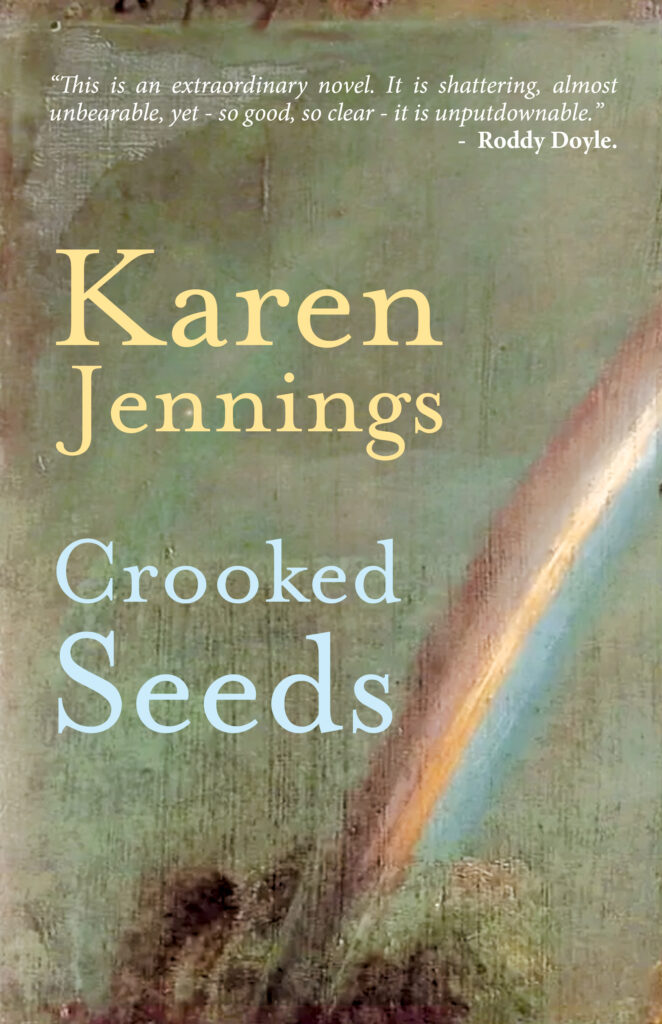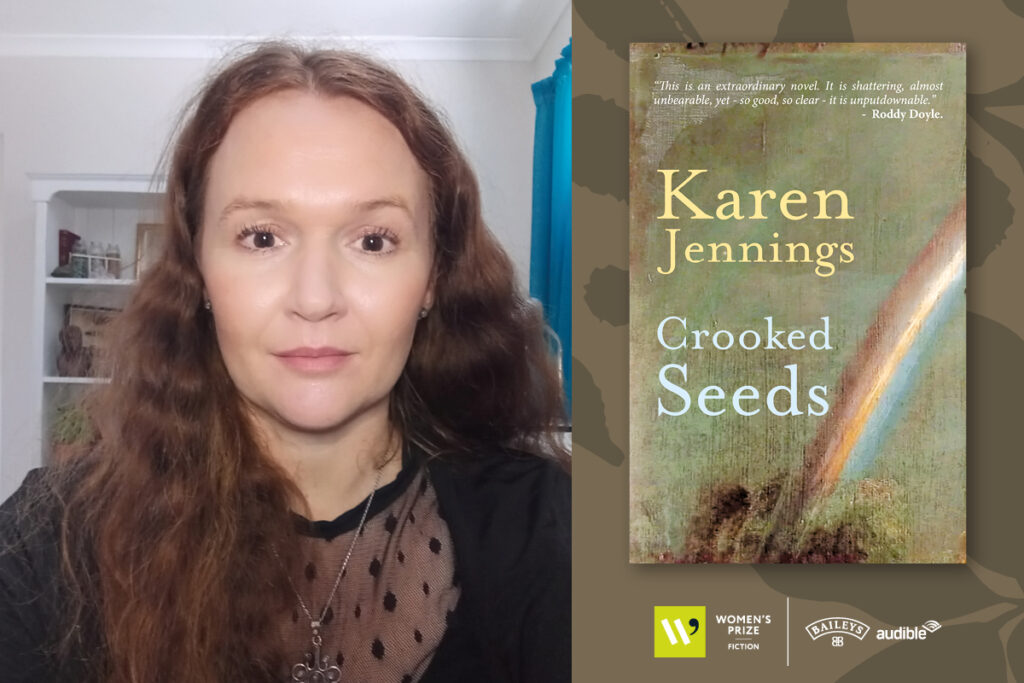Crooked Seeds by Karen Jennings sees a woman return to her South African home as she attempts to make sense of her family’s actions in the post-Apartheid era.
Longlisted for the 2025 Women’s Prize for Fiction, judge Bryony Gordon says: ‘This book made my skin crawl: it’s visceral, bleak and incredibly uncomfortable but so brilliantly written. A spare but powerful account of life in post-apartheid South Africa, I defy anyone to read this and not come away feeling altered.’
To find out more about the book we spoke to Karen about her inspirations, writing process and favourite books.
How would you describe your book to a new reader?
Crooked Seeds is not an easy read – Deidre, the protagonist, is selfish, bitter, manipulative, and her own worst enemy. She makes us uncomfortable, angry, sad as she battles to come to terms with her family’s past as it played out in South Africa on the eve of the first free and fair elections in 1994, a moment that is irrevocably and physically part of her as she lost a leg in a bomb blast at the time. As Deidre crutches around her neighbourhood in the present, the country is suffering from a severe drought, resulting in water rations, homelessness, rampant fires, and corrupt government practices. Yet, all around Deidre there are good people, kind people, who form part of a community – a community that Deidre demands from, yet refuses to be part of.
What was the idea that sparked your novel?
This novel didn’t have a single spark. It came together, it felt, out of nowhere, yet there are moments that contributed to it from when I was a child, and a teenager, and so on. Mentioned individually, they seem utterly insignificant, or alternately, make it seem as though Crooked Seeds is about one thing only, when it is about a variety of complex topics. One spark, for example, came from my early 20s. I used to take the train to university. For a period of about two weeks, the pavement outside the station near my house was being dug up by municipal workers. I can’t remember what the purpose was. What I do remember is that every morning and every evening i would walk past the ditch they had dug and see things they had unearthed. Nothing interesting – an old handbag strap, an old fork, bits of broken bottles or porcelain. This small moment stayed with me, making me wonder about what is buried beneath us, in the ground we walk over and live upon. Over time, this developed into the scenes in Crooked Seeds involving the digging up of the garden of Deidre’s family home.
Which part of the book did you write first? Was there a moment that clicked a lot of things in place or where you felt the strands of the book started to come together?
I wrote the opening pages first. They barely changed at all throughout the various drafts. But I suppose I struggled with the last two parts of the book – I was caught up trying to create a neat plot, which simply is not how I write. As soon as I find plot interfering, I have to remind myself to reduce the story to its simplest elements. What needs to happen and why? Once I remind myself of the essence of the novel, I am able to claw my way back into it and come to an ending that works for me.
Which part of the book was the most fun to write? Which was the most challenging?
The entire book was a challenge to write. It was immensely painful. Deidre is such a wounded person, carrying so much pain and anger, that writing her was emotionally exhausting in a way that is almost impossible to describe. When people say Deidre is not an easy character and that this is not an easy book (because of that), I want to say, ‘Imagine having to write it!’
However, there were a few moments that were fun, I suppose. One still makes me laugh. Deidre invites her neighbour over for tea, but then tells her she has to bring her own teabag, since Deidre has run out. It is such a rude and audacious act – it almost thrills me, makes me laugh out loud, that she can be so frustratingly awful when pretending to be kind!
What is the best piece of writing advice you have ever received?
Being a writer means writing – draft after draft after draft. Writing doesn’t come out perfect at the first attempt. Don’t hate yourself because a first draft is not a final draft.
Which female author would you say has impacted your work the most?
It isn’t a unique answer: Charlotte Brontë’s Jane Eyre has been immensely influential. The internal world of Jane, that, for me, is crucial, vital to try to achieve as a writer – the creation of real, believable characters.
What is your favourite book from the Women’s Prize library and why?
The Woman Next Door by Yewande Omotoso.
Could you reveal a secret about your creative process?
I wish there was a secret. There’s nothing glamorous or unique about my process. It is painful, takes many drafts, is usually done in my pyjamas at my desk. I predominantly write by hand – at least for the first draft or two.









